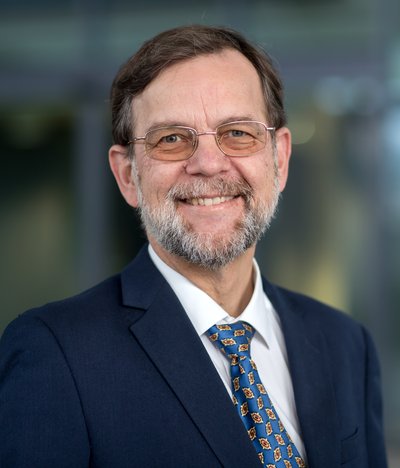Peter Baltus
Department / Institute

RESEARCH PROFILE
Peter Baltus is a Full Professor and Chair of the Integrated Circuits group in the Department of Electrical Engineering at Eindhoven University of Technology (TU/e). His key area of expertise is high frequency integrated circuit and system design. Other areas of expertise in the area of analog design include transceiver systems architecture analysis and design as well as RF and analog circuit design.
Peter is particularly interested in design methods for very low power transceivers at high frequencies and prefers working on unusual and long-term real-world problems. Recent research projects include low latency, high reliability wireless transceivers, efficient wideband beamforming, wireless power transfer at mm-wave frequencies for truly monolithic sensors, and exploration of unknown environments through sensor swarms.
Achieving ultimate performance circuits and systems from complex, imperfect components:, that’s the challenge
ACADEMIC BACKGROUND
Peter Baltus received his masters in Electrical Engineering from TU/e in 1985, and his PhD degree from the same university in 2004. He worked at Philips for 22 years and later NXP in Eindhoven, Nijmegen, Tokyo and Sunnyvale in various functions, including research scientist, program manager, architect, domain manager, group leader and fellow in the areas of data converters, microcontroller architecture, digital design, software, and RF circuits and systems.
In 2007 he started his current job at the Eindhoven University of Technology as professor in high-frequency electronics. From 2007 through 2016 he was director of the Centre for Wireless Technology, a cooperation between five research chairs that focus on (parts of) wireless systems. He co-authored more than 150 papers and holds 16 US patents. In 2006 he received the Veder award and in 2013, he was elected best Master Tutor at TU/e.
Recent Publications
-
Carlos Mendes da Costa,Rainier van Dommele,Peter Baltus
RF Circuits Laboratory for Remote Learning and Massive Open Online Courses
(2023) -
Peter Baltus,Oded Raz
A Blueprint for Future Electrical Engineering Education
(2023) -
V. Vidojkovic,D. Milosevic,K. Ding,R. van Dommele,J. Holmstedt,C. van Puijenbroek,R. Schalk,Y. Hou,I. Zivkovic,G. Radulov
RF and mm-Wave Systems and Circuits for Communications and Sensing
(2023) -
Corné van Puijenbroek,Thomas B.N. Booij,Vojkan Vidojkovic,Christian Fager,Rob Maaskant,Peter G.M. Baltus
Algorithmic Radar, a Novel Low-Power Architecture for High-Accuracy PMCW Radar
(2022) -
Kaijie Ding,Dusan Milosevic,Vojkan Vidojkovic,Rainier van Dommele,Mark Bentum,Peter Baltus
A 23 G Hz RF-beamforming Transmitter with > 15.5 dBm Psatand >21.7% Peak Efficiency for Inter-satellite Communications
(2022)
Current Educational Activities
Ancillary Activities
- Lid van Raad van Advies, Choice B.V.
- Venture advisor, Tandemlanch
- Member of Advisory Board, Motion Imager
- Board member, Stichting Wetenschappelijk Radiofonds Veder